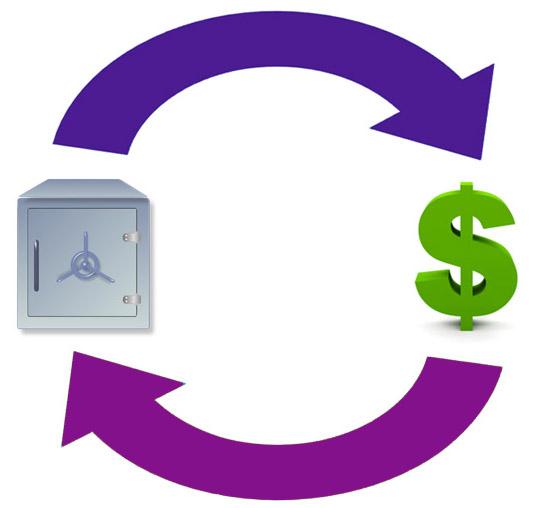 Alaska is known for its mountainous beauty, vast wildlife and mighty winter seasons. The northernmost state also tends to be an expensive state to live, whether purchasing real estate or renting. For real estate investors, it is not only a landlord-friendly state with fewer limitations than most other states, but it also offers great vacation rental opportunities. The Alaska Landlord Tenant regulations are found in the Alaska Uniform Residential Landlord & Tenant Act AS 34.03.010 – 34.03.360.
Alaska is known for its mountainous beauty, vast wildlife and mighty winter seasons. The northernmost state also tends to be an expensive state to live, whether purchasing real estate or renting. For real estate investors, it is not only a landlord-friendly state with fewer limitations than most other states, but it also offers great vacation rental opportunities. The Alaska Landlord Tenant regulations are found in the Alaska Uniform Residential Landlord & Tenant Act AS 34.03.010 – 34.03.360.
At a Glance:
Security Deposit Limit: two month’s rent (if the last month’s rent is collected, it’s included in this restriction). Units renting for over $2,000 are exempt from this rule.
Late Fee Limits: None.
Returned Payment Fee Limit: None.
Notice to End Lease: 30 days’ advance notice for month-to-month leases, 14 days for week-to-week, fixed term leases can specify custom notice requirement.
Notice to Enter: 24 hours (except for emergencies)
Late Fees:
Late fees cannot be so extreme that a judge would rule them unfair or unreasonable. Generally, it is better to collect a single flat fee however, if a daily (per diem) charge is outlined in the lease agreement, the landlord must adhere to the limitations in Alaska usury law, which prohibits charging more than five (5) percentage points above the Federal Reserve discount rate or ten and a half (10.5%) percent where the Fed rate is not published.
All late fees must be agreed upon ahead of time. Therefore, landlords and managers should include the details of any late charge or assessment in the lease contract.
Security Deposits:
In Alaska, in accordance with Section 34.03.120 of the Alaska Landlord Tenant statutes, a landlord may collect from a tenant a security deposit, however it may not be in excess of an amount equal to two months’ rent. There is an exception when rental amounts are over two thousand dollars per month. Unlike most states, landlords may also require an additional deposit for pets on the premises, not to exceed one month’s rent amount. It is important to note that a deposit may not be taken for service animals and any pet deposit may only be used in connection with the sole use of pet damages.
The landlord must return the deposit to the tenant’s last known address within fourteen (14) days after the tenancy ends. If any deductions are made, the landlord will then have thirty (30) days to return the itemized statement along with any balance left over.
Alaska security deposit statutes are spelled out completely under Article 3, Section 34.03.070 of the Alaska Uniform Landlord Tenant Act.
Eviction Notice:
Proper notice delivery is important, if the landlord wants it to meet Alaska legal requirements. Eviction notices or “notices to quit” must be delivered personally to the tenant or the landlord may use either registered or certified mail via the United States Postal Service. When mailing the notice, the landlord will mail it to the address of the rental unit. All notices to terminate a tenancy must be in physical written form, and not emailed. A phone call to your tenant requesting him to move so your friend can move into the property is not sufficient.
If a tenant fails to pay the rent when it is due, the landlord may provide a seven (7) day written notice to pay. This eviction notice provides that the tenant either pay or the tenancy will be terminated and they must move. If the tenant pays, the tenant can stay.
Other reasons to evict a tenant include: deliberate cause of damage to the rental unit where only a twenty-four (24) hour written notification is needed; illegal activity conducted on or about the rental unit or failure to pay utility bills, where a five (5) day written notice must be provided; or a breach of the agreement requires a ten (10) day notice (this does not include non-payment of rent).
Miscellaneous:
Alaska law dictates that the landlord must inform or show the tenant the rules and regulations before the tenant enters into a lease agreement. If the rental unit is governed by a housing or condominium association, these rules also must be provided before the tenant enters a lease.
Alaska has a state fire code but generally the individual municipalities establish their own housing codes.
Questions? Ask an Attorney!
Have questions about Alaska’s landlord-tenant laws? We have you covered. Ask in the box below, to have your questions answered by living, flesh-and-blood attorneys!
DISCLAIMER: Wellspring Financial LLC DBA SparkRental.com is for informational purposes only! Any information, legal or otherwise is provided “as is” without any representations, truth, accuracy, exactness or warranties, expressed or implied. Any data, form, or information provided shall NOT be construed or taken to be legal advice. You must NOT rely on any data, form, or information on this website as an alternative to obtaining sound, legal advice from a licensed or professional legal service provider.

















Alaska Landlord Tenant Act ONLY covers apartments, mobile homes and houses; it specifically does NOT cover rooming houses, B&Bs, AirB&Bs, short term rentals (under 60 days) … basically, vacation rentals are NOT covered by this Act. If a person rents a ROOM, without a kitchen, only a room with a bath, it is NOT covered by the Act. You might want to check this out better.
One must get an Alaska business license, then register for paying the sales taxes (7.85% for first $500) in certain boroughs, post the rules and regs in each room … just like a hotel room.
Can a landlord post a “notice to quit” on a tenants’ door if the lease agreement says that the tenant has until the “end of business” (6pm) to pay rent in full by the 2nd day of the month and the landlord posts the notice to quit at 5pm? Is this a breach of the lease agreement by the landlord, posting early? And if so what can the tenant do to stop this action?